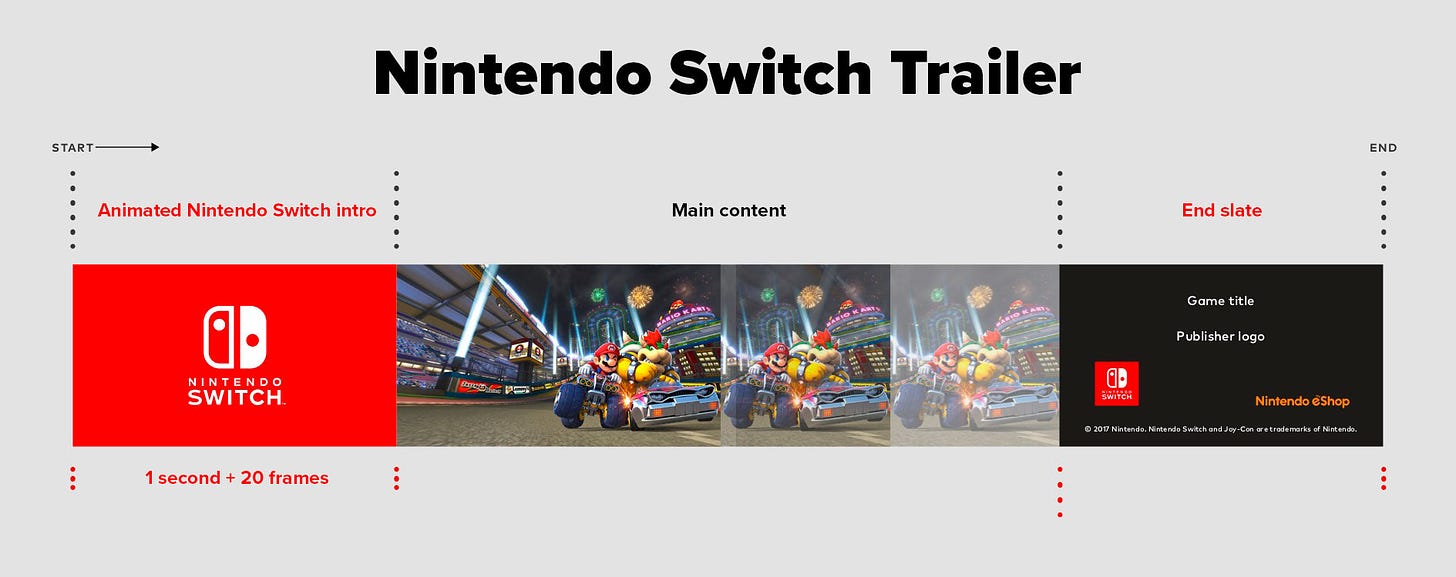
Featured Blog | This community-written post highlights the best of what the game industry has to offer. Read more like it on the Game Developer Blogs or learn how to Submit Your Own Blog Post
Has your game got 'juice'? (& more!)
A lot of this good feeling in game trailers and gameplay is related to polish, juice and game feel - so let's explore how it works for discoverability! (And more besides!)

[Hi, I’m ‘how people find your game’ expert Simon Carless, and you’re reading the Game Discoverability Now! newsletter, which you can subscribe to now, a regular look at how people discover and buy video games in the 2020s.]
Welcome to the new subscribers that joined Game Discoverability Now! since the last newsletter! (And all of you old fogies, of course.) This is the latest edition of the Game Discoverabilityland round-up, where I look at multiple subjects in one giant missive.
And let’s start out with something a bit different - a musing on the essential discoverability of certain games:
‘Juice’ it to win it!
This week on Twitter, I was remarking on the success of Townscaper, the experimental citybuilding toy/game that’s already racked up 3,000 Steam reviews in a short amount of time.
One thing I was taken with is how ‘juicy’ the gameplay feels, even when you just see a brief clip for a few seconds. Click around this ‘Let’s Play’ video to see what I mean:
Sure, some of the appeal of Townscaper is the super-clever way it connects in-game models as you build multi-stage houses and street layouts, and the smart way it fills in the ‘gaps’.
But it also has an immense sense of game feel. There’s little showers of dust as you add a building storey, subtle morphing of new objects with FX as they get added, etc. It ticks all the ‘feel good’ boxes, even when watching it.
A lot of this good feeling is related to polish, juice and game feel. So if you’re not as familiar as you could be, check out this video from Petri Purho (Noita) and Martin Jonasson (Holedown) for a great starting point:
There’s actually a lot of other YouTube videos on this general subject. But I thought this Game Maker’s Toolkit piece is a good overview of the overall concept:
When I think of recent games killing it on the ‘game feel’ side of thing - both playing and watching - I think of titles like Carrion (such satisfying controls) or even Gunfire Reborn (its FX and ‘juice’ really sell it.)
Even super-minimal games like the upcoming Qomp (you’re a ball from Pong, escape! I really dig this concept) benefit from the visceral feel of ‘juice’ in FX, screenshake, morphing, and so on. And yes, this concept counts as discoverability too, because it makes your game inherently more attractive. So think about it a little bit…
Follow-up: the game value war to come?

Thanks to everyone who read or commented on my ‘game platforms & subscriptions / giveaways’ piece from earlier this week. In particular, thanks to former BioShock and BioShock Infinite design lead Bill Gardner for pointing me to an editorial he wrote for IGN back in 2018 called ‘What's the Real Value of a Video Game?’
Gardner’s piece was prompted by the original emergence of Xbox Game Pass, and asks a similar question as me: “While we should all be psyched at the prospect of being able to play more games, we all need to be asking what kind of games we’ll be left with – what kind of an industry will remain if we keep conditioning gamers that games no longer have value?”
Of course, that was written almost two and a half years ago, and I would say things are only marginally worse. (Perhaps it’s got harder to charge $60 for a game since then?)
And then I saw this story about Microsoft’s Aaron Greenberg noting re: Xbox Game Pass: “You can either say, 'How we do get as much profit out of each customer?' Or, do you pivot that opposite and say, 'How do we add as much value to our fans?' 'How can we actually over-deliver on value?' And if you do that, you build fans for life.”
This shows what a PR win Game Pass has become for Microsoft as a platform. ‘High value to fans’ means that players are transferring some of their positive feelings to the platform that’s providing them the bundled value, rather than individual developers.
Xbox’s new strategy is gradually replacing the hardware middleman - the traditional console value proposition - with a platform-agnostic software bundling middleman. And I still don’t know how I feel about that, from a regular game publisher/developer perspective.
Finally, Seth Schiesel just wrote an excellent piece for Protocol on the differences between Sony and Microsoft’s approaches to next-gen video games, subscriptions, etc. I suggest you read it for additional context on why Sony’s hardware unit lead still makes them the company to beat in the high-end console game space.
Other good stuff…
Listen, there’s a lot more useful information to get through here. So let’s put our foot on the accelerator and see if we can blast through it all in a reasonable timeframe. Here goes:
New (incoming) platform feature on Steam: it’s a ‘play test’ button players can use for Beta versions, which should be very handy. And on the other side of the aisle, new Epic Games Store platform alert - it’s achievements! (Oh, and bonus: Steam’s top games for June were dominated by Electronic Arts releases due to their new-to-platform game dump.)
Thought it was interesting to see Mediatonic/Devolver’s Fall Guys as one of the two free PlayStation Plus games for PS4 in August. It’s been fairly rare to see a brand new title as a PS+ ‘giveaway’. Not sure if this is just opportunistic, or a change of tactics on the Sony side (as a partial reaction to Game Pass).
Haven’t talked about EA’s PC Origin client/subscription service that much in this newsletter. But there’s a new Beta client rolling out if you’re a Origin Access Premier member. Reminder that the store is mainly EA titles, but has some third parties too - the tiers are $30 a year for access to ‘a bunch’ of EA titles and $100 a year for access to basically all EA games released on PC. Of course, separately: “EA Access is available on Xbox One and Playstation 4 [and Steam soon!] but is not connected to Origin Access.”
‘Online digital festivals that give you access to a Steam sale’ are a category of virtual events everyone should be keeping an eye on. It looks like Digital Dragons may be the latest, though I don’t know how extensive the Steam feature will be. Hit me up if you find others (paid or unpaid). Bonus: GamesCom’s virtual Indie Arena Booth has announced its 194 devs (!), and the late August virtual event has a pretty unconventional ‘in-world booth’ setup for attendee avatars to wander around. (And don’t forget about GDC Summer next week!)
Extreme miscellany: this piece on trends in Steam capsule art is intriguing, am interested to see (in higher-end indie funding news!) Private Division stepping up with League Of Geeks, Roll7 & Moon Studios deals (congrats!). And I’m a little bit obsessed with U.S. baseball using Unreal Engine to create a virtual crowd for TV, in the absence of an actual human audience.
Finally this week, wanted to highlight Derek Lieu’s GameTrailerSpecs.com, which provides all kinds of very specific (and useful!) details on exactly what game consoles, iOS, and Steam/Epic video trailers require in terms of resolution, start and end slates, and more. Things like this:

This is a godsend because there’s a lot of fiddly details (and the console are pretty specific about this type of thing.) So it’s great to have them all in one place. Hurray!
Read more about:
Featured BlogsAbout the Author
You May Also Like









